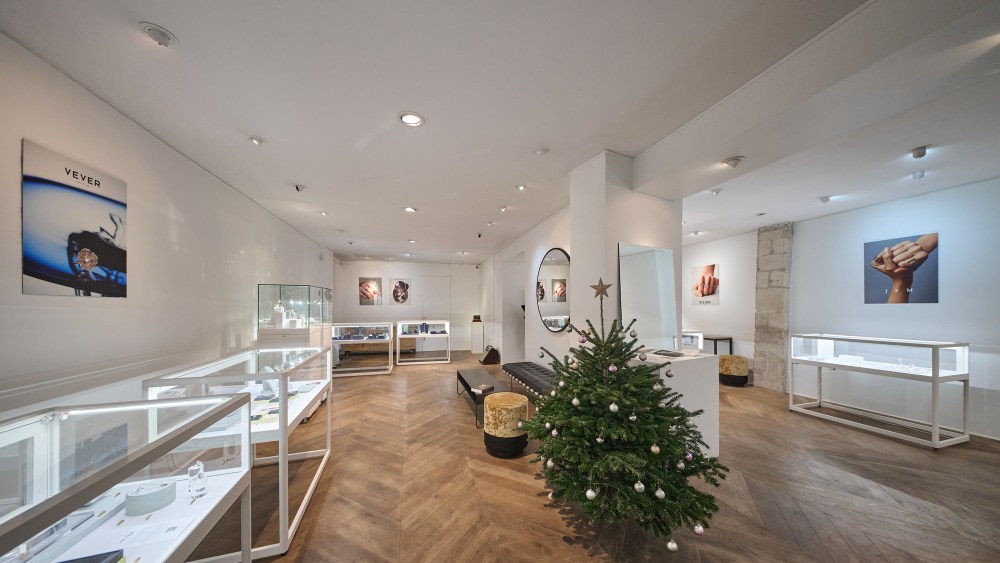SHINING BRIGHT: What if lab-grown diamonds were no longer the main talking point?
That’s what a quartet of Parisian jewelers who have chosen to use such stones want to suggest through the “Eclat d’un Nouveau Monde” (or “shine of a new world” in English) pop-up in art-minded Saint-Germain-des-Prés open until Dec. 31.
“I find it a shame that when you read about houses offering lab-grown diamonds, that’s the bulk of the story when often, it’s a material among others,” said Camille Vever, who chose to use them when she revived her family’s 100-year-old jewelry house in 2021.
The project started with a conversation with Dorothée Contour, who switched to lab-grown stones in 2018 for her 15-year-old ethical-gold label, Jem.
“We realized that we had great experiences with the stone, how it’s perceived by clients and what it can create in terms of client uptake and desirability,” she told WWD. “But that wasn’t reflected in public discourse or in press.”

Jem, Mazarin, Mysterjoy and Vever (left to right) teamed up for Paris pop-up.
Courtesy
From there sprang the idea of putting on a pop-up that would serve as an opportunity to explain why contemporary jewelers like them chose lab-grown diamonds for their creations.
“It’s a story of the 21st century, contemporary, with an ecological conscience but also with a quest of innovation, of new territories,” added Contour, a firm believer in the power of the collective when it comes to highlighting topics such as sustainability and independent creation.
The pair therefore enlisted another two jewelers who use lab-grown diamonds in their creations: Mysteryjoy, a brand founded in 2021 by gemmologist Joy Toledano, and Mazarin, the two-year-old label launched by Louise de Rothschild and Keagan Ramsamy.
The latter were happy to team up with like-minded labels who share “a taste and ambition for audacious creations that look towards the future” and “the conviction that an evolution in practice plays a primordial role in the preservation of the dream of jewelry,” they wrote in an email.
So lab-grown stones serve as the throughline for the pop-up, all four labels are keen not to be defined solely by their use.
“Union is strength to show we have more to say beyond the use of lab-grown diamonds, as we all have our own universes and distinctive creations,” said Toledano. “A lab-grown diamond is magical, incredible but behind each of our pieces, there something we want to say, a story we want to tell.”
Hence the choice of a neighborhood traditionally connected with artists rather than jewelers. While off the beaten track for a quartet of jewelers, its art-minded crowd has a knack for understanding creative processes and universes, said Vever.

The pop-up is located in the art-heavy Saint-Germain-des-Prés area.
Courtesy
“I wanted to show the jewelry know-how and creative universe behind each brand,” she continued. “Using lab-grown diamonds for ethical reasons doesn’t mean we judge those who use mined diamonds but I wanted to show that we can use lab-grown diamonds and have a luxury positioning.”
Arrayed in the 1,600-square-foot gallery at 22 Rue de Seine are Mysteryjoy’s designs that span from rings set on nylon thread that seem to float on the skin and alphabet-cut diamond motifs to Mazarin’s sculptural jewels nodding to elephants, a powerful symbol and endangered animal honored in most cultures, and Jem’s geometric pieces inspired by architecture.
Meanwhile, Vever is showcasing its organic-looking jewelry as well as vases created in collaboration with French designer and sculptor Emilie Lemardeley.

